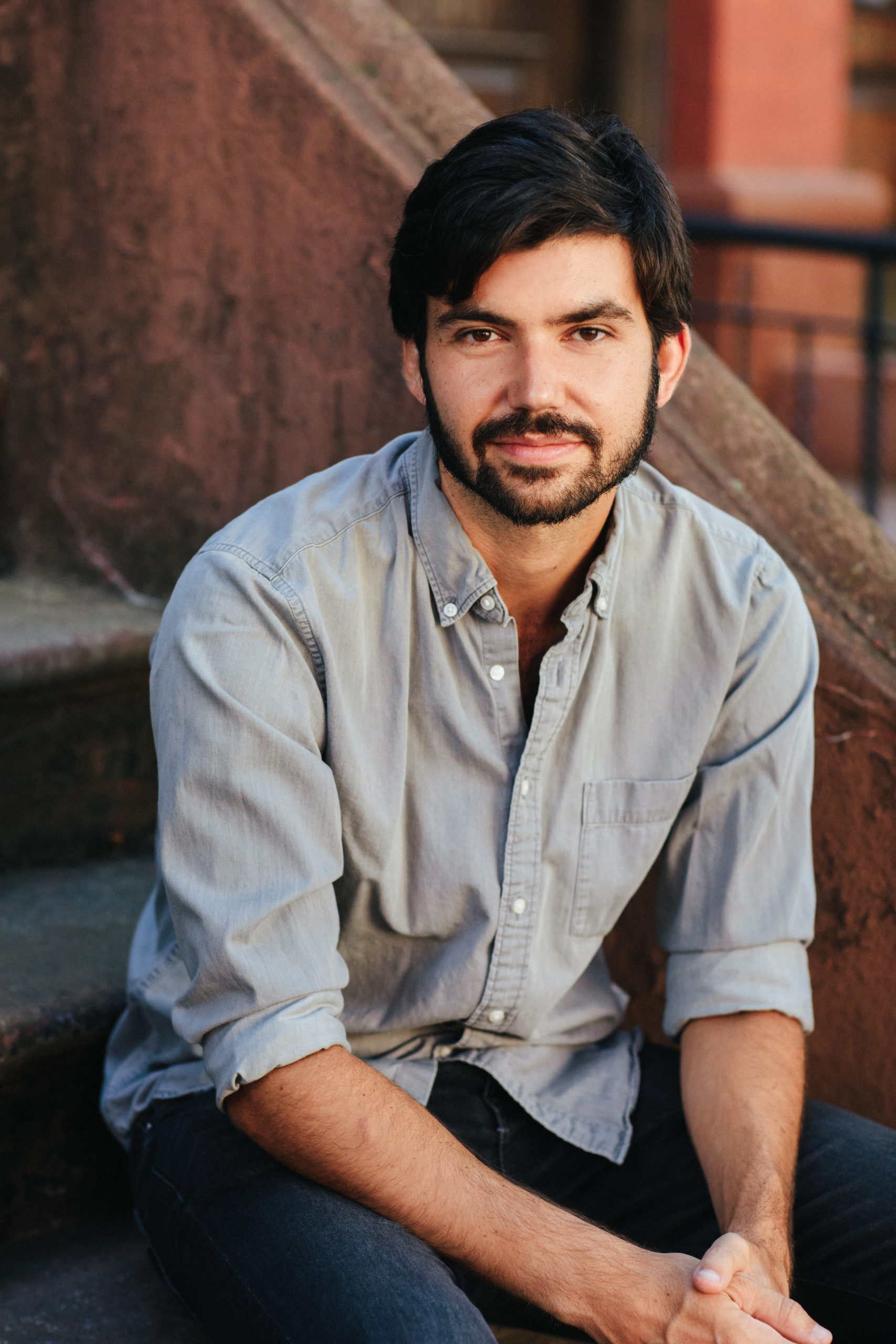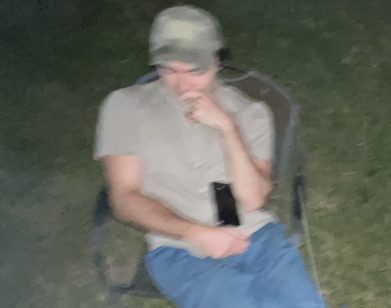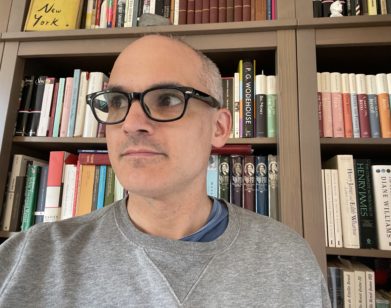q&a
Author Daniel Loedel on Ghosts, Tango, and “The Odyssey”
In Hades, Argentina, surely one of the most astonishing debut novels of the year, Daniel Loedel creates a doubly haunted ghost story out of his quest into the hell of Buenos Aires’s 1970s Dirty War. The novel revolves around a young Argentine named Tomás Orilla, who has returned to his homeland a decade after escaping the military junta that took power and terrorized its citizens. In returning to Buenos Aires from his new life in New York, Tomás descends into an underworld revisitation of his past love for a young Leftist insurgent named Isabel who was disappeared after she joined the counter-offensive, and his own crimes as a covert worker inside a torture center called Automotores Orletti. In scene after scene, Loedel is as masterful in his prose on love, and heartache as he is unflinching in his descriptions of the torture applied to the perceived enemies of the regiment. It is a difficult and mesmerizing book, and yet, like Virgil leading Dante through the furnace, Loedel’s narrative hand allows us to follow along without giving up our sense of hope. “The city remained completely unmarred by what happened within it,” Loedel writes early in the novel, as if to present his thesis to the reader. “Buenos Aires never showed its scars, never let its surface be ruffled; it was a city made for forgetting as much as for nostalgia.” Loedel, who is also a book editor at Bloomsbury, wrote most of Hades, Argentina in his Brooklyn apartment, waking up early, listening to tango, trying not to be distracted by his two cats. But this book is no mere literary exploration of an atrocity that has been given too little coverage in the United States. It also draws from personal experience. Loedel’s half-sister, Isabel Loedel Maiztegui, was 22 years old, and a member of the Montonera resistance group, when she was disappeared by the dictatorship in 1978. In 2019, Loedel and his family reclaimed her remains and were able to put her to rest. The novel is dedicated to a sister he never knew, and her absence haunts the book like a second ghost hovering above the others. I spoke with Loedel about the power of that haunting.
———
CHRISTOPHER BOLLEN: One thing that blew me away about your novel is its intricate structure. It isn’t a straightforward account of Buenos Aires during the Dirty War. Rather, you’ve turned it into a trip through the underworld, the main character conferring with ghosts. This is a conceit that goes back to Odysseus traveling down to Hades in order to find his way home, and to Dante with Virgil. But it also references a lot of the magical ghostliness of Latin American literature. How did this structure present itself as the right path for your story?
DANIEL LOEDEL: At first, I tried to write a realist version focused primarily on 1976. But the book felt flat for a long time. As you may know, my half-sister was disappeared during this dictatorship. The character of Isabel is inspired by her. She was sort of a ghost in my house growing up, a presence in the background. I knew very little about her. She is my dad’s firstborn daughter. In writing the book, I had an epiphany of sorts realizing that my emotional experience was one in which the ghost of this person haunted me—and haunted my father. That feeling of being haunted by someone’s absence was one that I knew well and tapped into it in order to write this story. So the idea was really less a structural decision than a means of accessing what is emotionally true about living in the aftermath of a disappeared loved one. Once I realized what I wanted the underworld of Hades to be like, it allowed me to tell the story of what happened to Tomás while still having access to the feelings of guilt and the ten years that happened afterward. Honestly, it came to me on a walk that this was the solution. When it hit me I knew.
BOLLEN: Was your half-sister Isabel’s fate similar to the fate that unfolded for Isabel in the novel?
LOEDEL: Yes, she was disappeared in a similar fashion. She was killed in a gunfight. She was living in hiding at the exact address given in Hades, Río Negro 2166, with her partner, when the military showed up. Isabel’s mother and her partner’s brother were in touch after they had not heard from them for weeks. Together they figured out where she was, in a somewhat similar manner to Tomás in the book. Isabel’s mother had seen the address, and Isabel’s partner’s brother had known the neighborhood. They walked the streets until they found the house. Isabel’s mother approached the house and saw bullet holes in it. Then she went to the front house where the landlady lived and the landlady came to the door wearing—well, there are two different versions. In one she came to the door wearing Isabel’s shoes. In the other she was wearing her dress. But it was an item of Isabel’s clothes. Isabel’s mother asked what happened and the landlady said there were terrorists living back there and there was a gunfight and they were killed. And in 2018, after many years, when Isabel’s remains were identified, the forensic report showed that she was killed from bullet wounds.
BOLLEN: I can’t imagine how it must have felt to finally be able to claim your half-sister’s remains.
LOEDEL: For a period I felt like a fraud being the one to push for these things—to push to reclaim her body and her history, her character so to speak—because I didn’t know her. It was strange that the people who knew her best wanted to leave it in the past and yet someone who never knew her wanted to bring it into the present. It took a long time for everyone to realize, even if there was no healing from what happened, that it was worth trying to address those wounds.
BOLLEN: This might be my own American blind spot, but one thing that struck me about your novel is how rarely we hear the story of the genocide in Argentina during this period. I feel like we hear of the Dirty War, but it hasn’t been depicted with the attention and ferocity that it deserves.
LOEDEL: In Argentina, there is a lot of literature around the Dirty War. And much of it has to do with the legacy of it rather than the actuality of torture centers and fighting in the resistance. There are, of course, exceptions to that. But I think, unlike in, say, World War II where Germany lost, in many ways the Argentine dictatorship won in the sense that the resistance was by-and-large wiped out, at least the armed resistance was. The leaders were put on trial and imprisoned, but there were laws passed that protected all subordinates for a very long time. People went on living with the culprits of these atrocities in their society. There are accounts of people running into their torturer at a train station. Of someone on a bus seeing a man that raped them. But because there are so few survivors among the armed resistors, there’s not that many people to tell that story and to tell it with pride. This silence was pervasive for many years. Even now the fact that we call it the Dirty War is really a misnomer because it was an annihilation. I would say, though, that’s the beauty and the point of fiction. We create characters so that what are otherwise just a nameless mass of dead people, like in the case of Argentina, 30,000 disappeared, become something real to readers. It becomes something personal for them.
BOLLEN: Two years ago, I went to Phnom Penh, and was really moved by the way they had taken a torture prison used by the Khmer Rouge and turned it into a genocide museum. Some cultures just sweep their horrors under the rug and try to pretend it never happened. But this was putting the atrocities front and center, inviting people into the horror, acknowledging the nightmare. I think I sobbed eight times on that two-hour tour.
LOEDEL: They’ve done that in Buenos Aires, making the torture centers public. The most famous one, the ESMA site, was opened for viewing in 2004. Automotores Orletti, where Hades takes place, wasn’t made public until around 2014. A lot of these places were either owned by the military or just remained hidden, so I think a lot of them are only coming to light now.
BOLLEN: You were born and raised in Manhattan. When did you first visit Argentina?
LOEDEL: I didn’t actually go until 2010 when I moved there to live for a year. I grew up going to Uruguay a lot, where I have a lot of family. My father, at a certain point, primarily went back to Argentina, as he put it, “for death.” My father had bad associations with Argentina and when I moved to Buenos Aires he was sort of like, “Why would you want to live there?”
BOLLEN: As writers, we often find ourselves writing about subjects and situations that no human ever really dreams of having to dive into. But I think most writers have not had to tackle torture. You have these vivid, visceral, wrenching scenes of physical torture. Did you do research on the practices used? What was it like to write those scenes?
LOEDEL: I did a lot of research into it. I read a lot of first-hand accounts from survivors. There’s also a really horrific movie called Garage Olimpo (1999) that I watched that I can’t, in some ways, recommend because it’s just so horrifying to watch. And, of course, I visited many torture centers in Argentina to see them with my own eyes. Honestly, I tried to absorb as much of those experiences as I possibly could at a remove because I felt that if I was going to engage with those horrors, I wanted to engage with them in as truthful a way as possible. I didn’t want to end up accidentally making light of them. At the same time, the real Automotores was worse than the Automotores in the book. There were almost no survivors so there really weren’t any first-hand accounts. In terms of writing those scenes, I don’t know which ones hurt me more. Sometimes the scenes in which Tomás must be complicit with what is going on were worse than the scenes in which he was a victim. I think that speaks to how much bigger the horrors of such things are than just the torture itself.
BOLLEN: That’s what made the novel so complicated. The whole question of innocence or complicity falls out the window. You smartly point to this when an American tourist is arrested and tortured by mistake. And as an American reader, I found myself thinking, well, now that’s really unfair! She’s totally innocent! And there’s some reckoning with that response, because no one deserves to be tortured in this prison, not just the pretty American girl.
LOEDEL: I think there are a few instances like that where Tomás is trying to attribute logic to the injustice happening, as if even a place like Automotores should adhere to some kind of moral logic. We try to attribute moral logic to even immoral places, when in fact, no, these things are just wrong and random in every way.
BOLLEN: But in your telling of the events at the torture center, there are also these banal, everyday moments, like the torturers listening to music on the radio or watching a soccer match, or how Tomás starts making lunch for everyone.
LOEDEL: When I went to visit Automotores, I was astonished to see a kitchen and was told that this was where the torturers had lunch. There was also a school right on the same block. You realize, unlike the concentration camps in Germany, this was happening in the middle of Buenos Aires. In some ways hidden, in some ways everyone knew it was happening. Just that something this horrible could be happening with so much normalcy around it sort of reveals both the way that individuals and societies can be numbed to something this horrible and how it’s not just the torturers who become complicit.
BOLLEN: We’ve talked a lot about the brutal aspects of the novel, but as much as it’s a ghost story it’s also a love story. Your book is filled with music—and not just the radio the torturers play to drown out screams. At one point, Tomás hears the Brazilian song “The Girl from Ipanema” coming through the wall at his hostel. I wondered how much music influenced your writing?
LOEDEL: A ton is the short answer. Tango played a huge role in this book. When I was first starting out writing it I listened to tango non-stop, to [Carlos] Gardel in particular. Part of that was I really wanted to feel the spirit of Argentina. Part of it was that tango, in particular, is, to me, anyway, music about the past and love. Obviously, there are a lot of genres of music that would claim that title, but tango is the music of nostalgia. And, in a way, this book is really about those three things: the past, love, and nostalgia. For “The Girl from Ipanema,” I didn’t initially plan to include that. But sometimes you have to listen to serendipity when writing. I remember working on the end of the book and I had a Spotify radio station on, which was my Gardel station, and while working on that scene, “The Girl From Ipanema” came on and basically, I almost started crying. Because, in it, I heard the sound of Tomás thinking of Isabel. That’s what it sounds like to think of her for him.
BOLLEN: I’m amazed by writers who can listen to music while writing.
LOEDEL: Let me give a brief nod to [the British composer] Max Richter. If you ever want to write surrealist, dream-like sequences, he is the musician to listen to for that.
BOLLEN: I want to thank you because after I finished your book, it brought me to pull my copy of The Odyssey off the shelf and look through that part where Odysseus returns to Hades. I re-read that haunting scene where he encounters his mother and, not knowing that she had died in his absence, tries to hug her three times but she is just a ghost and there’s nothing to hold.
LOEDEL: It’s funny you mentioned that moment. My father has conflicted feelings about the book, and he said to me one day, “Tomás is a horrible person.” I said, “Why? He’s trying to do the right thing. Yes, I know he is complicit in torture but he’s trying.” He said, “No, it’s because of how he treats his mother. For that he’s a horrible person!”
BOLLEN: Did your whole family read the novel?
LOEDEL: My half-sister Bonnie, who is also half-sisters with Isabel, is the only one in my immediate family who has been unable to read it so far.
BOLLEN: I know you had a ceremony in 2019 when you reclaimed Isabel’s remains.
LOEDEL: Yes, there was a ceremony. It was really moving. So many people who knew Isabel showed up, her high school and college friends, her childhood nanny. As I said, I sort of felt like a fraud leading that charge. I mean, I was the one to carry her bones into the mausoleum. It was astonishing to feel so close to someone I never knew in the moment of celebrating her life and memorializing her death. It was a really surreal experience.
BOLLEN: She was the definition of disappeared for so long.
LOEDEL: Yeah, she was. A lot of families had it worse in a sense because they did not know if their loved one was dead or not. My family knew. But it was important to have a moment to memorialize her.







